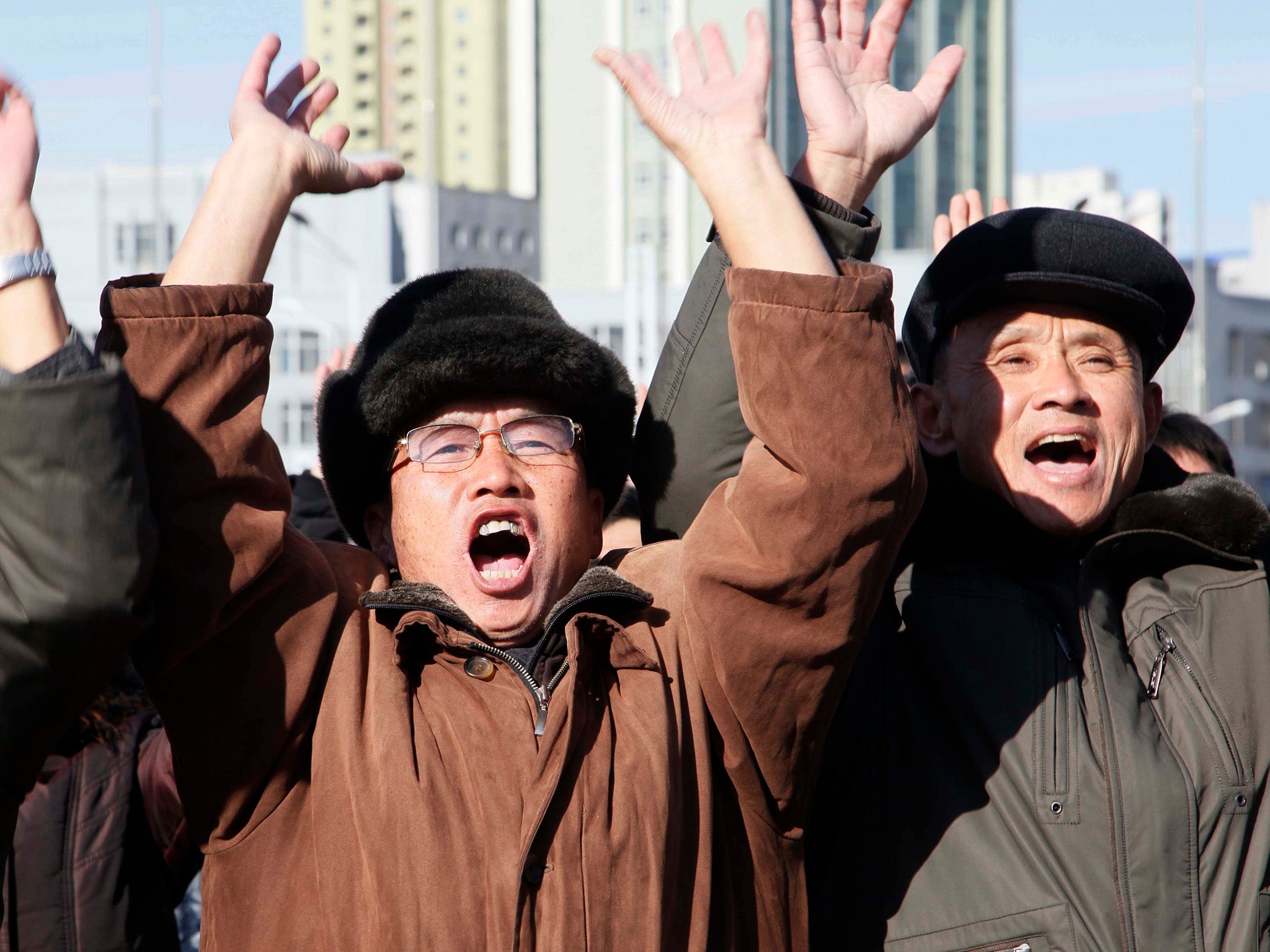When tourists visit North Korea they are funding Kim Jong-un’s missile programme
Tourists wanting to find out more should turn to the harrowing accounts of defectors who can describe in intimate detail what it is like to want to eat the maggots off their dying father’s face because they are so weak from starvation

Your support helps us to tell the story
From reproductive rights to climate change to Big Tech, The Independent is on the ground when the story is developing. Whether it's investigating the financials of Elon Musk's pro-Trump PAC or producing our latest documentary, 'The A Word', which shines a light on the American women fighting for reproductive rights, we know how important it is to parse out the facts from the messaging.
At such a critical moment in US history, we need reporters on the ground. Your donation allows us to keep sending journalists to speak to both sides of the story.
The Independent is trusted by Americans across the entire political spectrum. And unlike many other quality news outlets, we choose not to lock Americans out of our reporting and analysis with paywalls. We believe quality journalism should be available to everyone, paid for by those who can afford it.
Your support makes all the difference.After two months of silence, North Korea launched a ballistic missile in the middle of the night. Yesterday’s missile flew longer and higher than any other previous test, raising concern that the country is reaching nuclear missile capability faster than anticipated. But while the 23rd missile of 2017 is an all-consuming worry for the international community, there is no doubt that constant push notifications, news and Twitter coverage about defections and missiles makes the country an intriguing destination for curious travellers.
Although North Korea is known as the “hermit kingdom”, it only takes a few minutes to book a seven day all-inclusive trip there. Fuelled by a desire to see the country behind the headlines, tourists ignore the obvious – the millions of North Koreans trying to get out. Men and women spend years concocting escape plans, collecting enough cash, food and cigarettes to bribe border guards and brokers. Meanwhile tourists fly in and out at the touch of a button, simply because they consider themselves intrepid travellers.
But choosing to visit North Korea is not like deciding between a long weekend away in Nice or Edinburgh. It is a moral, financial and political decision with far-reaching implications.
Proponents of travelling to North Korea argue that tourists act as a grassroots means for its people to meet foreigners which may influence them to question the propaganda they are forced to imbibe. But all interactions are carefully stage-managed. Tour guides are PR experts, supplied from the Ministry of State Security and trained to leave a good impression on visitors while guiding them around a pre-determined list of Potemkin-style sites. “Spontaneous” meetings with street vendors, students in libraries or women in maternity wards who all speak perfect English, have been expertly organised for tourists to “accidentally” bump into. If the actors in this grotesque play stray from their scripts they put their lives at risk and that of their families to.
As the chances of meeting and engaging with ordinary North Koreans are practically nil, tourists do nothing to change their perceptions. The end result is naïve visitors or do-gooders returning home with false observations of the propaganda state, believing life inside North Korea isn’t that bad after all. But North Korea wants tourists to tell their friends they had a great time riding on the Pyongyang metro or that they ate the best kimchi of their life at Chongryu Hot Pot.
But there is no excuse for ignorance. North Korea is a totalitarian regime with human rights abuses the United Nations have described as being “without parallel in the contemporary world”. From the 5,000 odd tourists who visit North Korea annually, it is estimated the regime earns up to $40m (£30m) which, due to it being a state-run industry, helps fund Kim Jong-un’s nuclear arsenal and supports his prolific network of labour camps.
Tourism of this kind is a luxury, but when a tour costs around £1,000 and the country’s GDP per capita sits at $583 this is simply voyeurism, lending legitimacy to the regime and treating North Korea like a zoo. Tourists wanting to find out more should turn to the harrowing accounts of defectors. One woman described to me in intimate detail what it was like to want to eat the maggots off her dying father’s face because she was so weak from starvation.
By visiting North Korea, simply to be able to trump someone else at a dinner party when the topic of UN sanctions or missile tests comes up, or even just to be able to have an unusual passport stamp, tourists are becoming “useful idiots” playing into and upholding Pyongyang’s policies. North Korea should never be a trendy destination, but if you are considering visiting, ask yourself this – would you have visited Nazi Germany?
Join our commenting forum
Join thought-provoking conversations, follow other Independent readers and see their replies
Comments